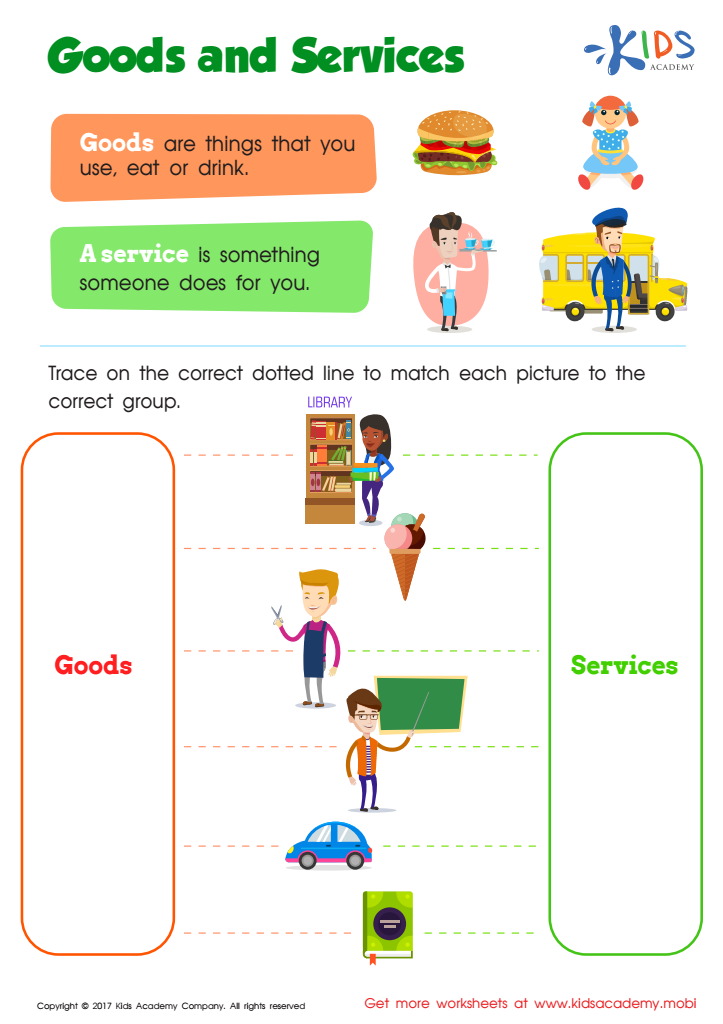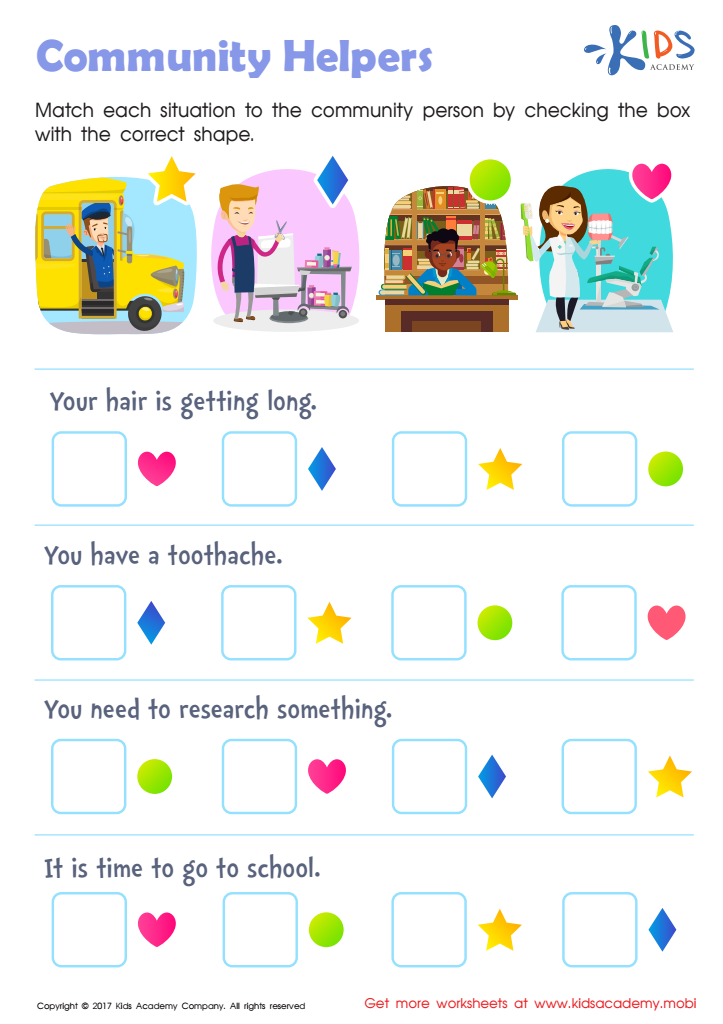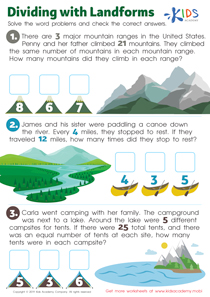Fun Community Worksheets With Answer Keys
24 filtered results
Difficulty Level
Grade
Age
-
From - To
Subject
Activity
Standards
Answer Keys for Community Worksheets for Grade 2
Introducing our comprehensive collection of Community Worksheets with Answers designed exclusively for Grade 2 students. This engaging set of educational materials aims to foster a deeper understanding and appreciation of the community in which we live. Each worksheet provides a stimulating platform for children to explore their surroundings, learn about various community helpers, and develop essential skills across subjects like language arts, mathematics, and social studies. With the accompanying answer key, educators and parents can effortlessly assess and guide students' progress. Unlock the potential of Grade 2 learners with our Community Worksheets with Answers, encouraging active participation and nurturing a sense of belonging.
Favorites
With answer key
Interactive
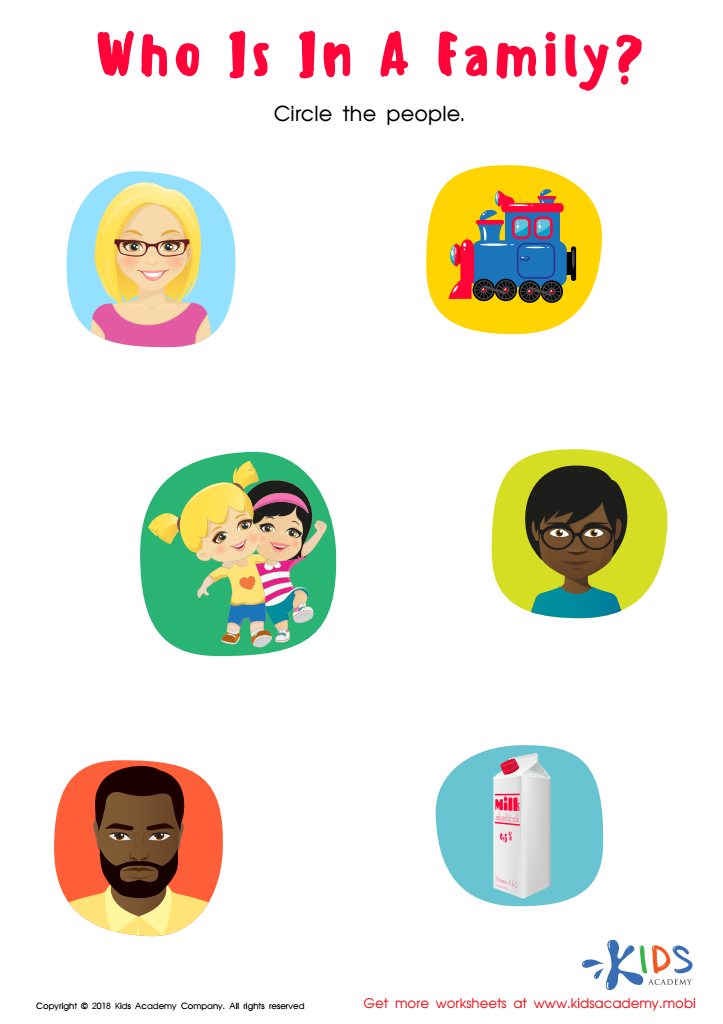

Who Is in a Family? Worksheet
Kids enjoy discussing families. This easy, colorful worksheet helps them determine if a person or thing is in a family. Children look at each picture, name it, and circle it if it represents someone in a family. It introduces or reinforces family words, making it ideal for toddlers.
Who Is in a Family? Worksheet
Worksheet


Services Worksheet
Help your child learn the difference between services and goods with this Kids Academy worksheet. Guide your child to read each sentence and select the correct worker who does the job for the service. With this worksheet, your child can learn about common services in the community.
Services Worksheet
Worksheet
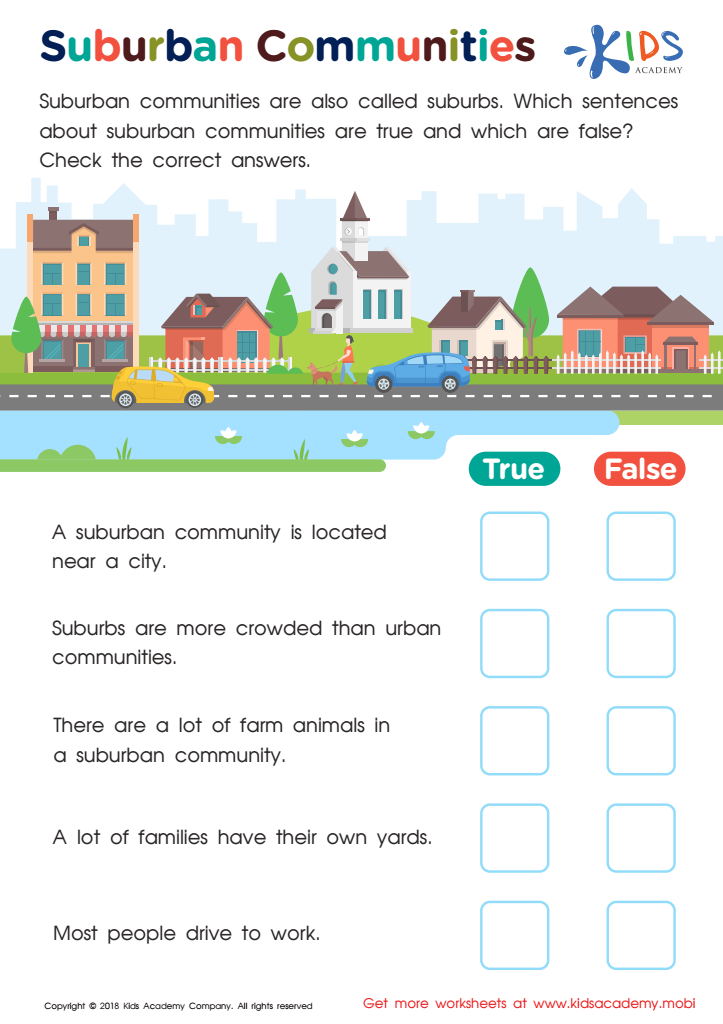

Suburban Communities Worksheet
This worksheet helps your students/children understand suburban communities. Have them read the sentences and check the true or false box for each. They will gain a better knowledge of the suburbs after this exercise.
Suburban Communities Worksheet
Worksheet
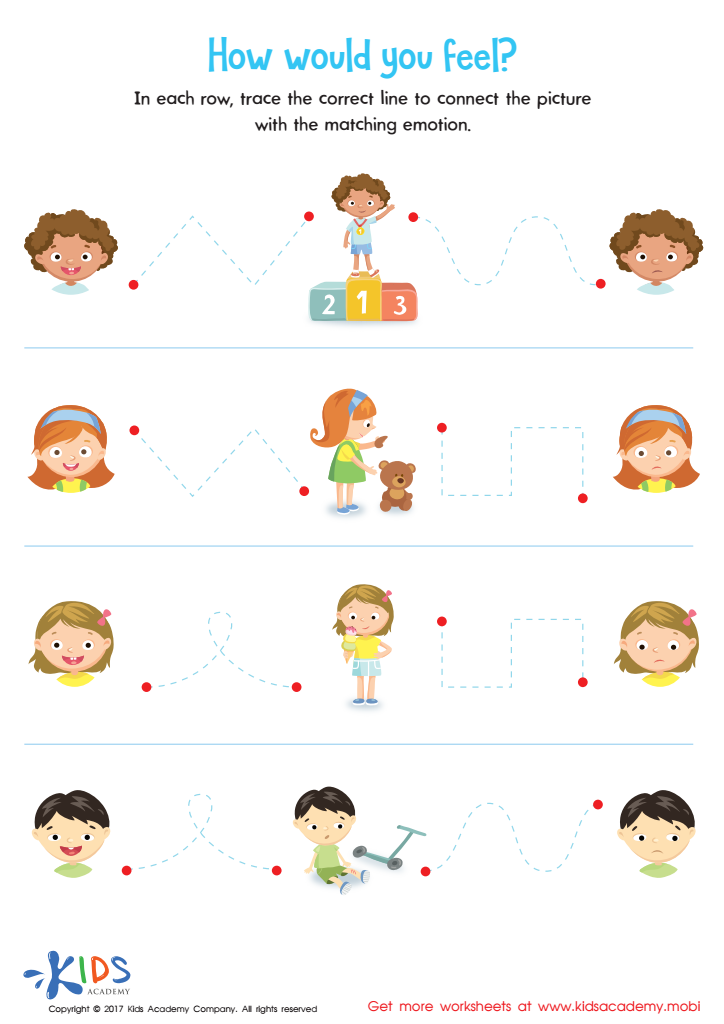

Feelings and Emotions Worksheet
Kids must learn how to deal with situations and handle their own emotions. This worksheet helps them practice empathy and resilience, making them more self-aware and confident. It also helps them to relate their life experiences to common disappointments and develop coping mechanisms.
Feelings and Emotions Worksheet
Worksheet
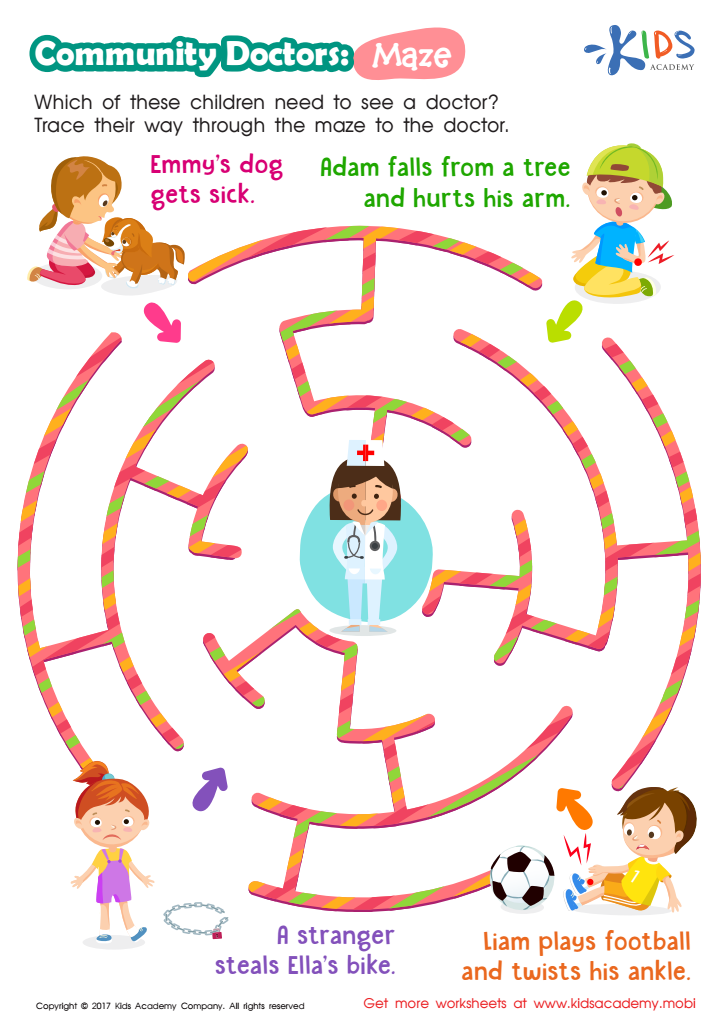

Community Doctors: Maze Printable
It will help your child demonstrate prior knowledge of doctors, consider their role in the community, and connect learning to a fun activity.
Kids already know what it's like to visit the doctor, but this worksheet will help them see doctors as community leaders too. It's a quick and fun way to teach your child about doctors and their roles, with a maze to complete after each scenario. Learning made enjoyable!
Community Doctors: Maze Printable
Worksheet
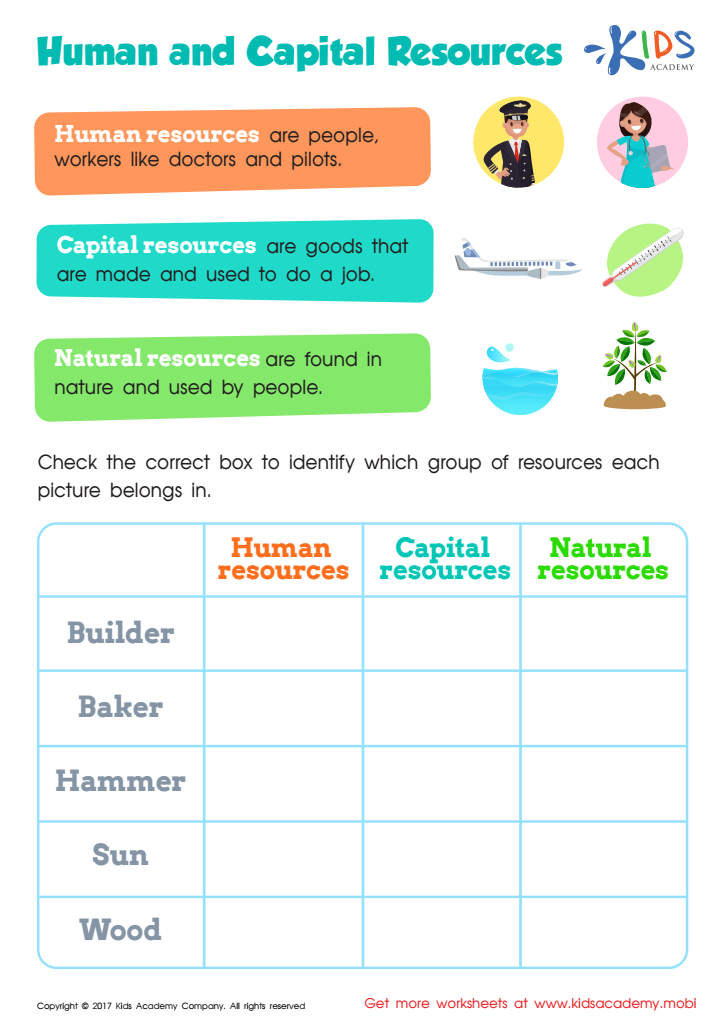

Human and Capital Resources Worksheet
It helps identify and differentiate human, natural and capital resources, so your kid can understand how each affects their world.
Human and Capital Resources Worksheet
Worksheet
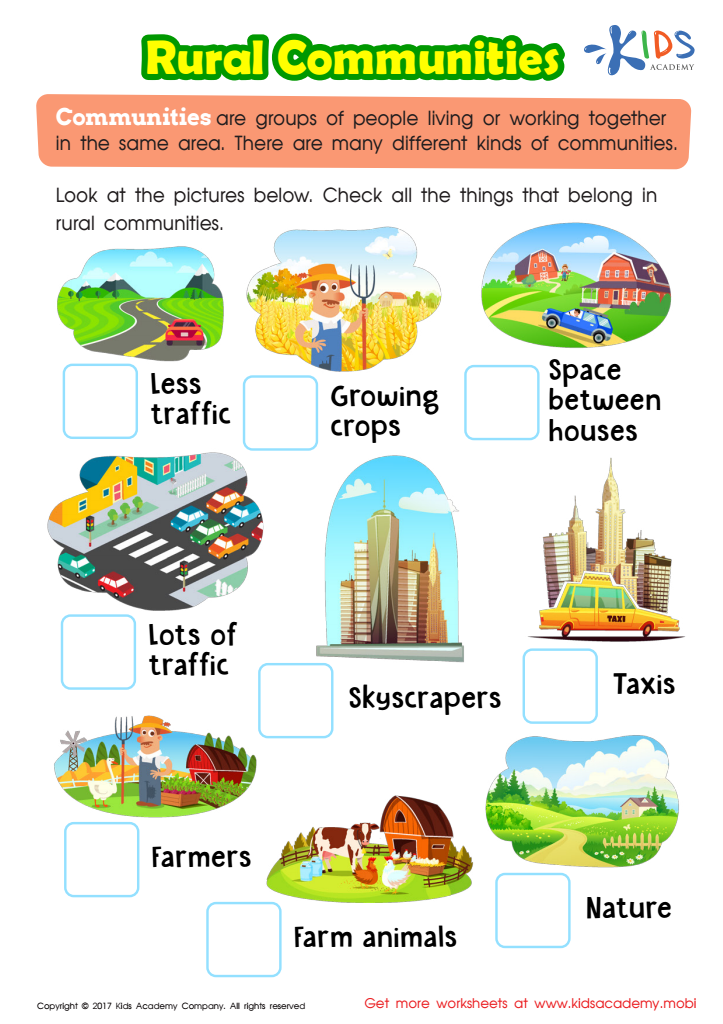

Rural Communities Printable
Help your child explore the contrast between city and rural living with this worksheet. They'll learn to recognize the buildings and transportation in urban settings, as well as how rural life can differ. Then, discuss the differences between city and rural living, and why life is different for people living in each.
Rural Communities Printable
Worksheet
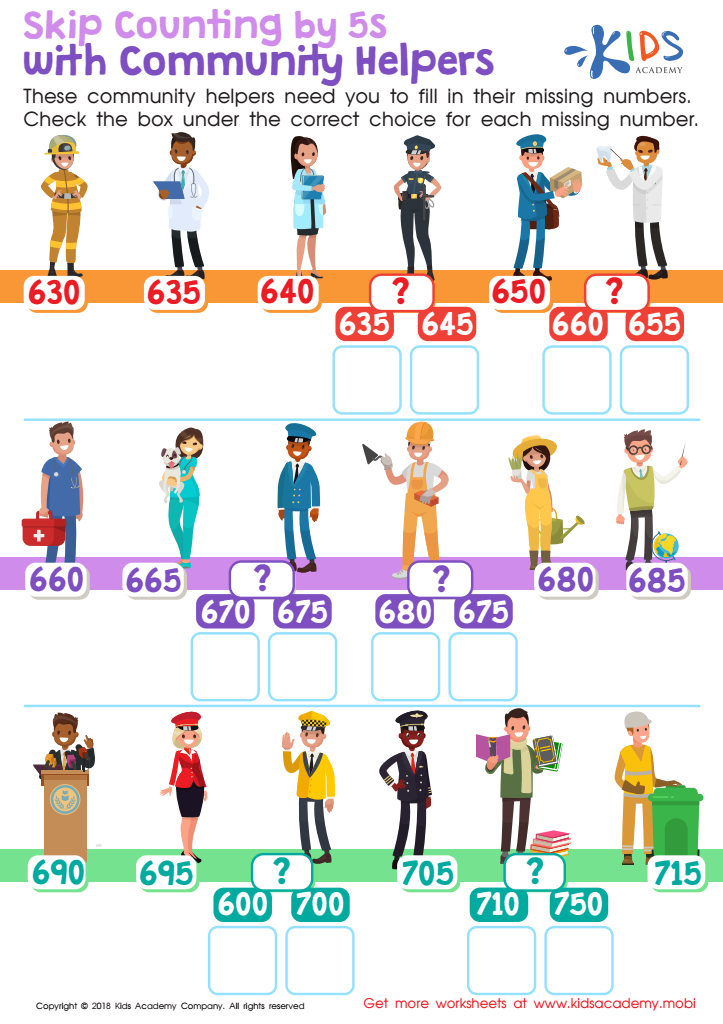

Skip Counting by 5s With Community Helpers Worksheet
This free worksheet combines social studies with math! Kids will practice counting by 5s, rounding numbers and honing their computation skills while also familiarizing themselves with community helpers. Develop your child's number sense and strengthen their math skills - all through a fun and interactive activity.
Skip Counting by 5s With Community Helpers Worksheet
Worksheet
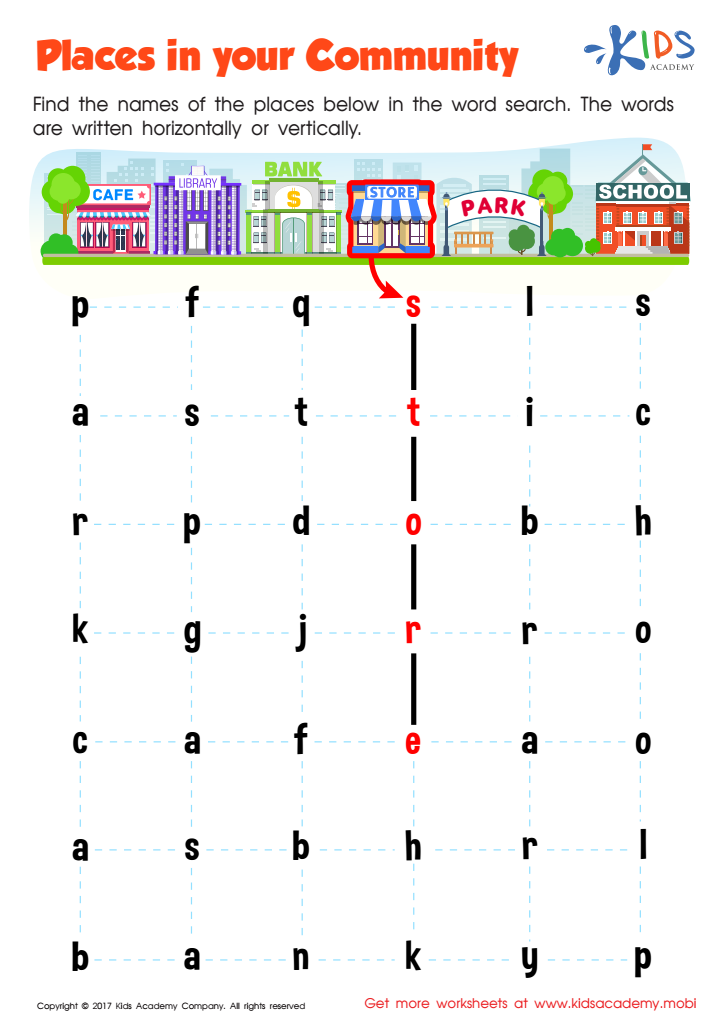

Places in Your Community Worksheet
Find and circle words related to common places in your community, like library, fire station, and more. Practicing vocabulary and spelling, your child will gain a better understanding of their community.
Places in Your Community Worksheet
Worksheet
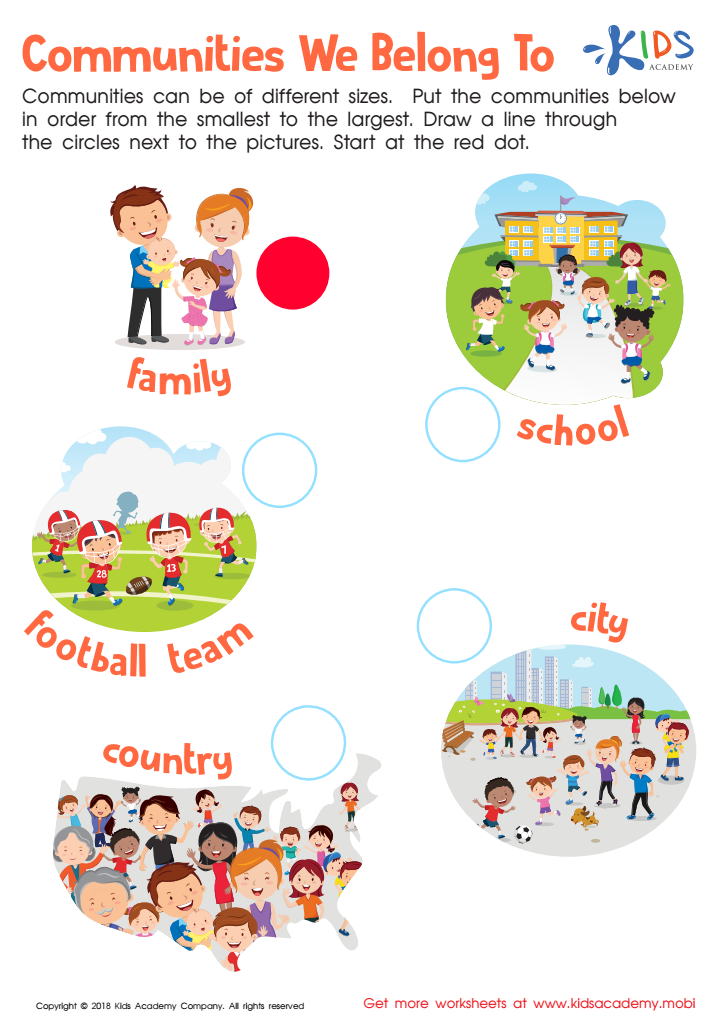

Communities We Belong to Worksheet
Help your child understand the differences between communities with this worksheet. Look at the family, school, football team, city, and country and discuss which is larger and which is smaller. Follow the red dot from the smallest to the largest.
Communities We Belong to Worksheet
Worksheet
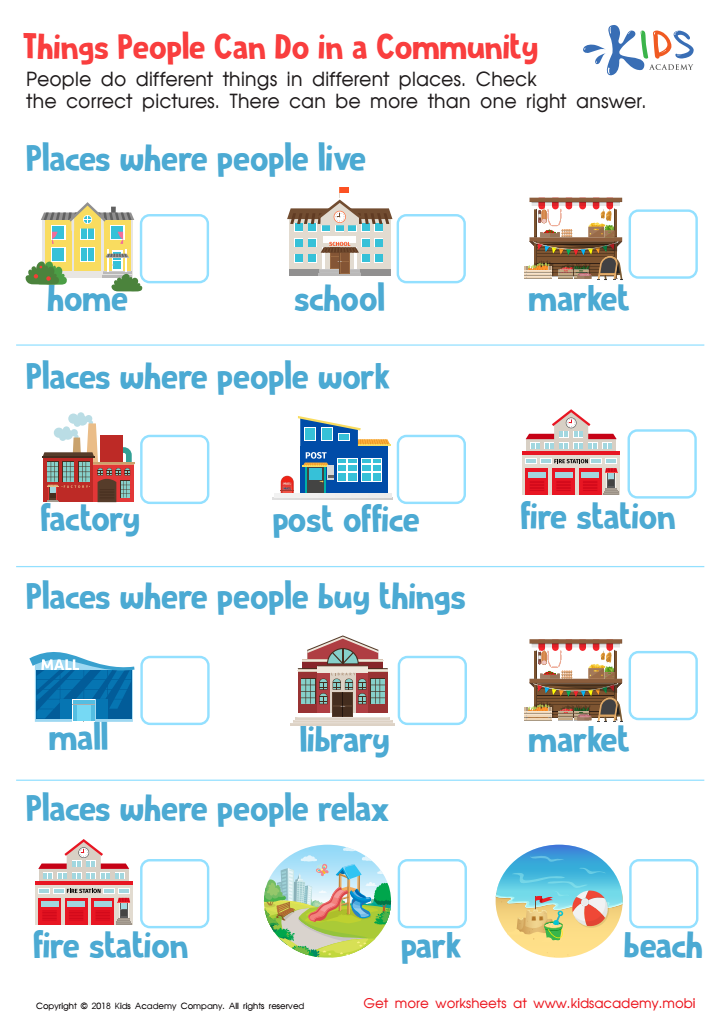

Things People Can Do in a Community Worksheet
Review the worksheet with your students/children, checking the boxes corresponding to the question. There may be multiple answers. Test their understanding of different communities by having them identify what happens in each place. Use this to measure and refine their knowledge.
Things People Can Do in a Community Worksheet
Worksheet
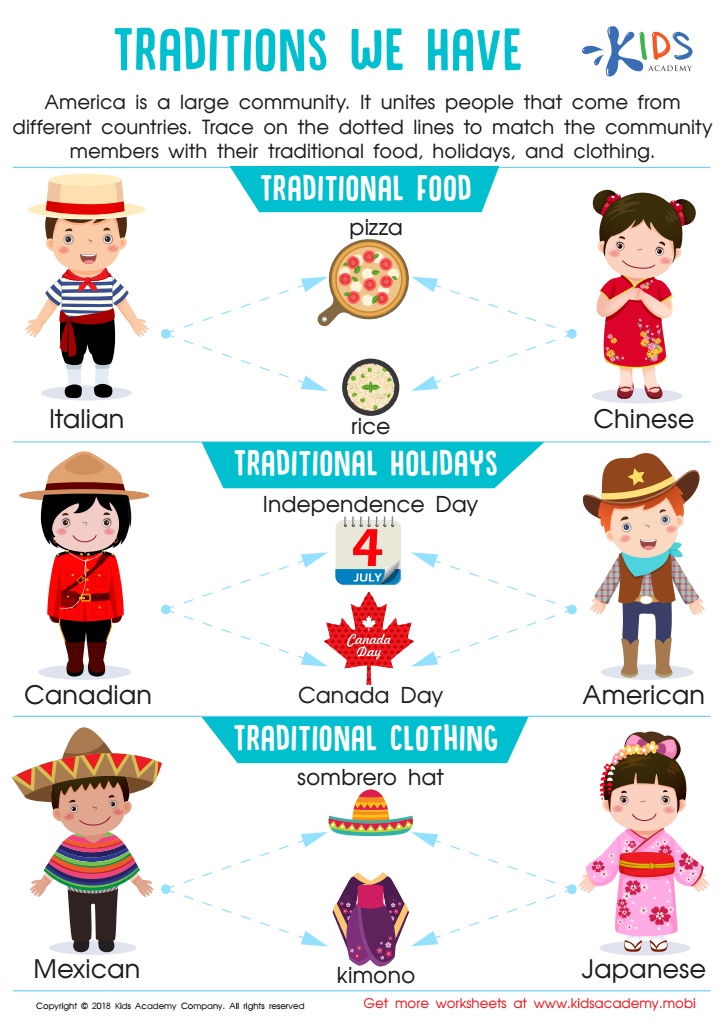

Traditions We Have Worksheet
Help your child learn about the world's diverse cultures with this tracing sheet. Trace the dotted lines to match different community members with their traditional holidays, foods and clothing. America is just one of many countries with multiple communities living together - teach your child that everybody has different backgrounds and customs, opening their minds to an even bigger world.
Traditions We Have Worksheet
Worksheet
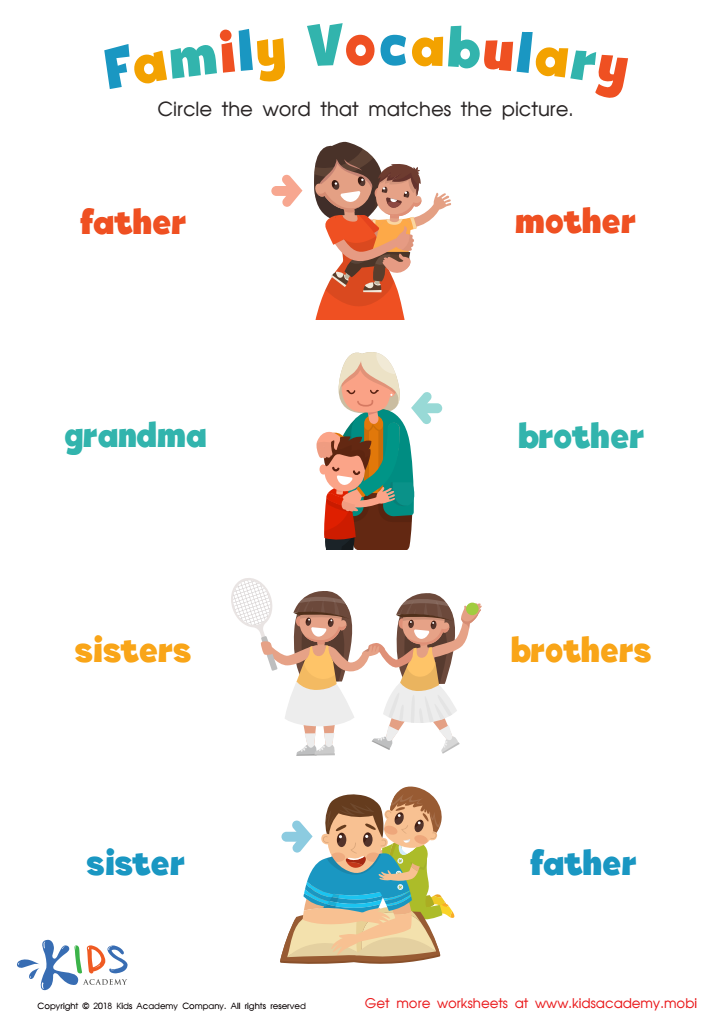

Family Vocabulary Worksheet
Students learn about families in social studies. This worksheet helps them identify family members by looking at a picture and circling the corresponding word. To extend their learning, ask them to talk about their own family members.
Family Vocabulary Worksheet
Worksheet
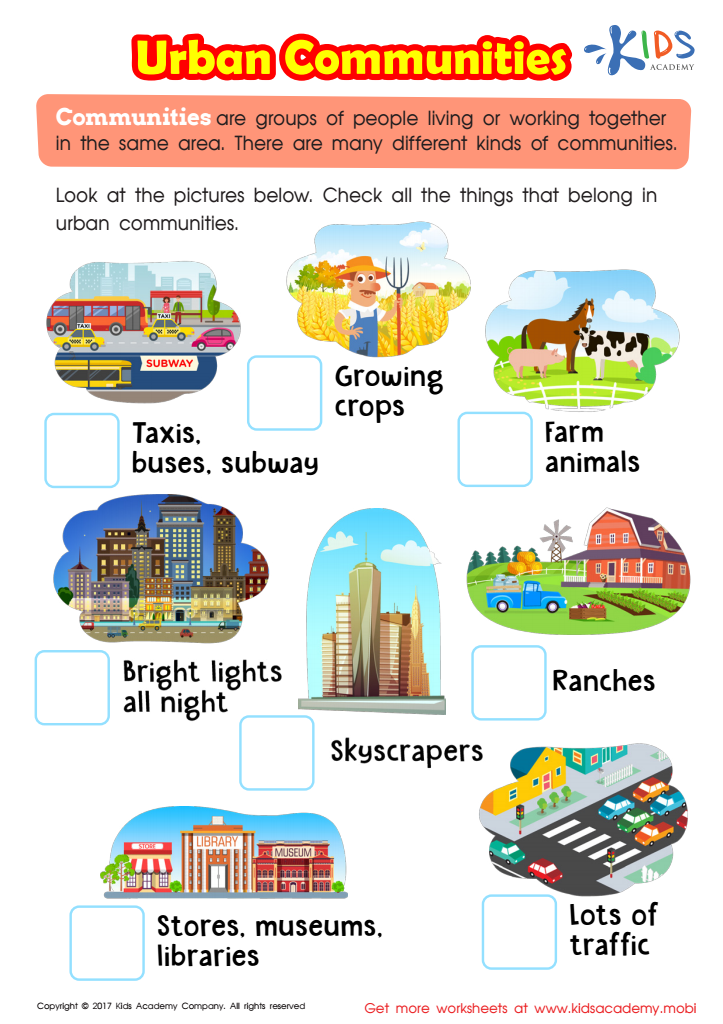

Urban Communities Printable
(80 words)
Explore the differences of urban, suburban and rural communities with this worksheet! Introduce your child to city life and help them understand the common attributes of different communities. Open their eyes to the world around them and let them discover life beyond their own. Make them aware of what life is like in different communities and let them experience it from the comfort of their own home.
Urban Communities Printable
Worksheet
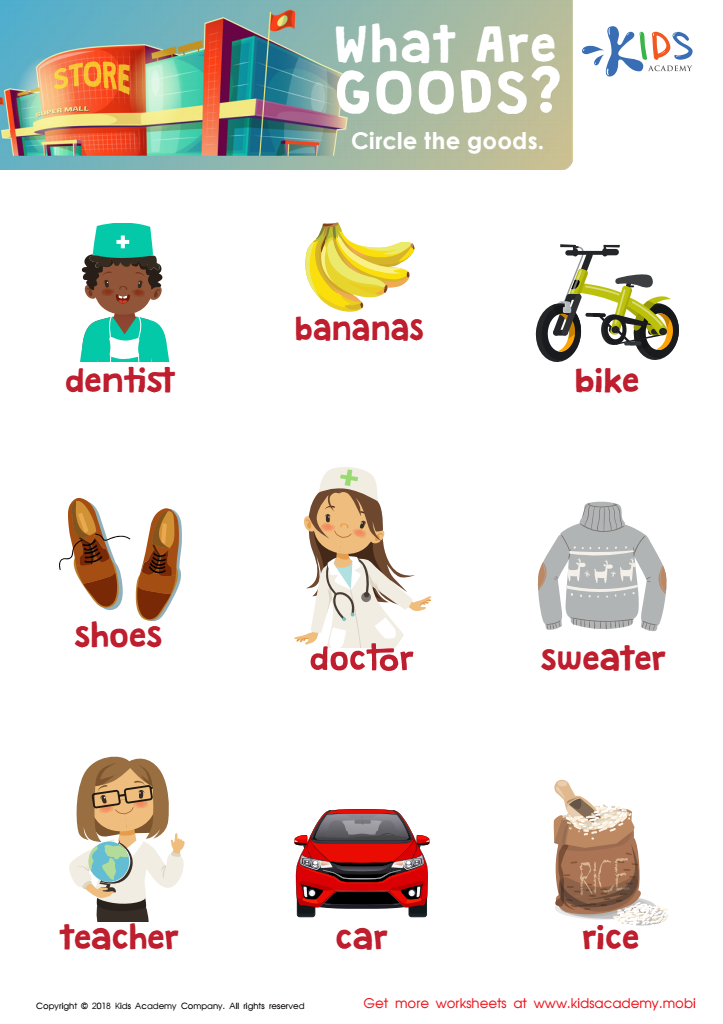

What Are Goods? Worksheet
Introduce your child to economics with this social studies worksheet! It helps kids differentiate between goods and services. Have them look at each picture, discuss what it does, and decide whether it's an object or a service. Encourage them to think carefully and circle the goods. It's a great way to start teaching the basics of economics.
What Are Goods? Worksheet
Worksheet
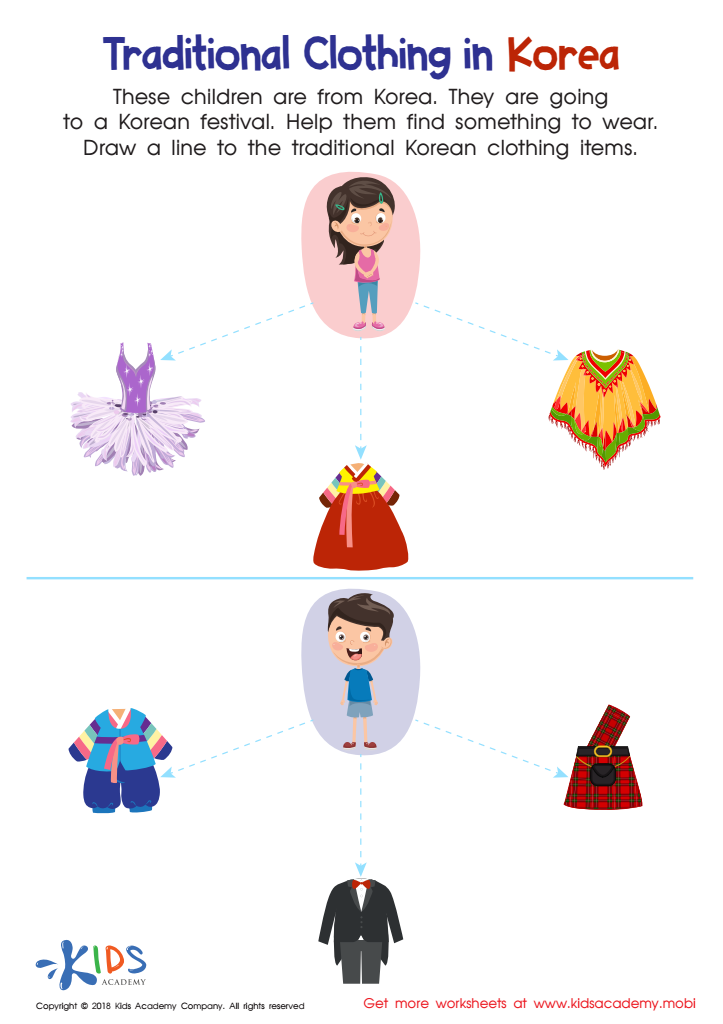

Traditional Clothing in Korea Worksheet
Students can explore global cultures through this fun PDF worksheet. It introduces Korean children and a Korean festival. Students can choose the children's clothing using traceable lines. It's essential for our globally connected students to learn about different traditions, clothing, foods and cultures of other countries.
Traditional Clothing in Korea Worksheet
Worksheet
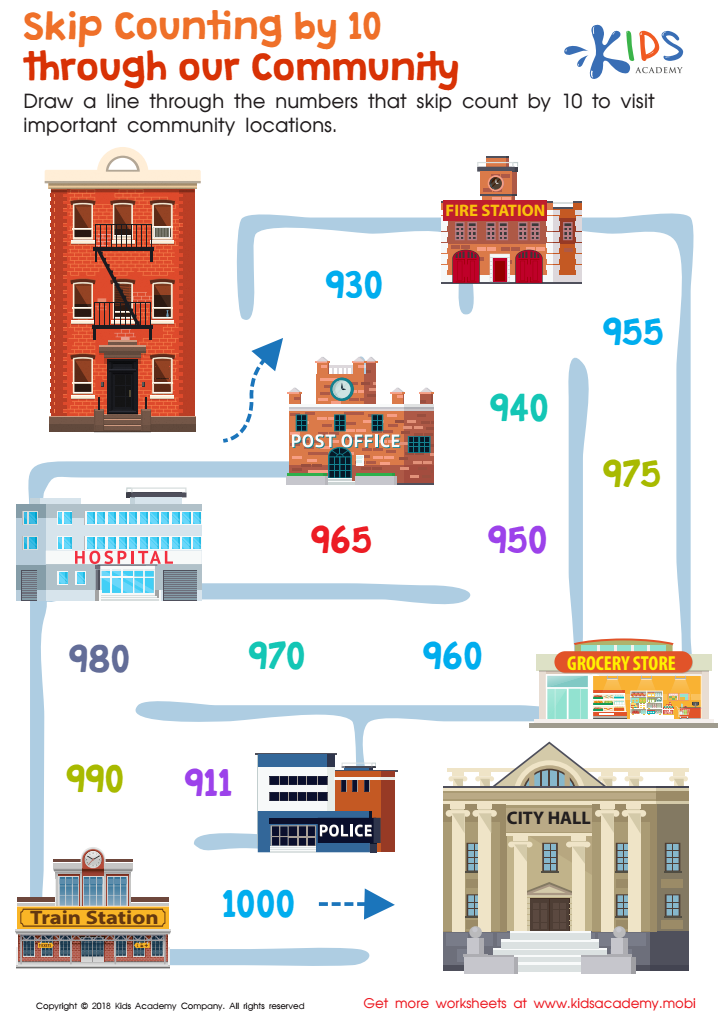

Skip Counting by 10 Through Our Community Worksheet
Our kids need to 'make a ten' and skip count by tens to boost their speed and accuracy in math. This cool, free worksheet takes them on a journey through their local community to practice counting by tens. They'll work on social studies and fine motor skills while having fun with the maze they get to count by tens in!
Skip Counting by 10 Through Our Community Worksheet
Worksheet
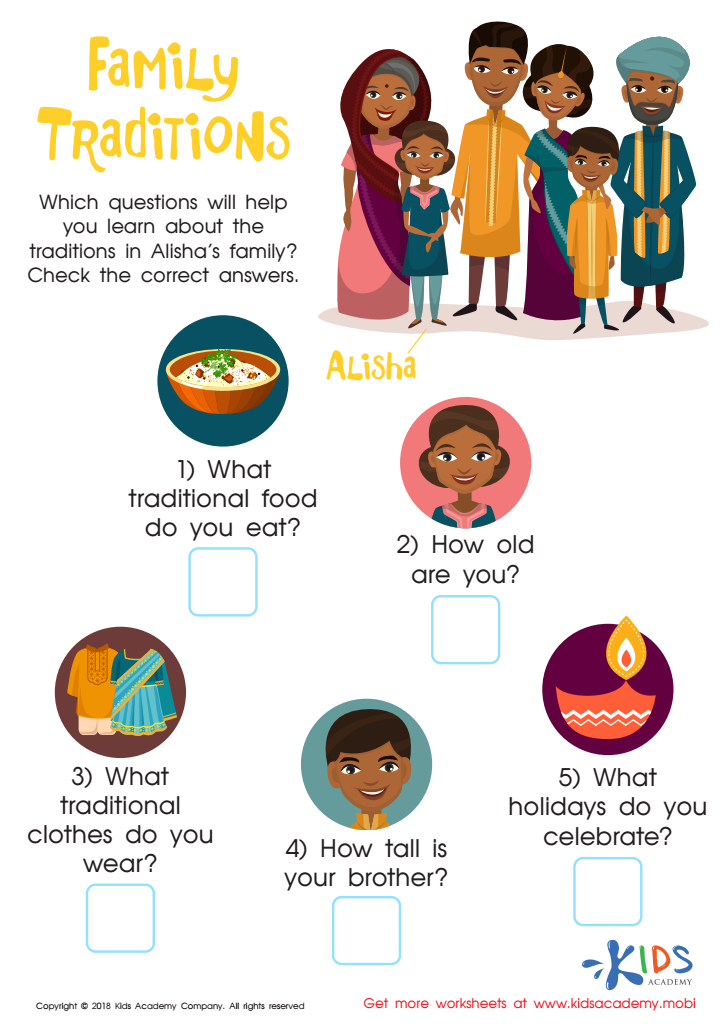

Family Traditions Worksheet
This worksheet helps kids understand Alisha's family traditions. It has questions a child can ask a new friend from a different culture. These questions cover food, clothing and holidays. Explain to your child how the answers are educational and guide them through the questions.
Family Traditions Worksheet
Worksheet
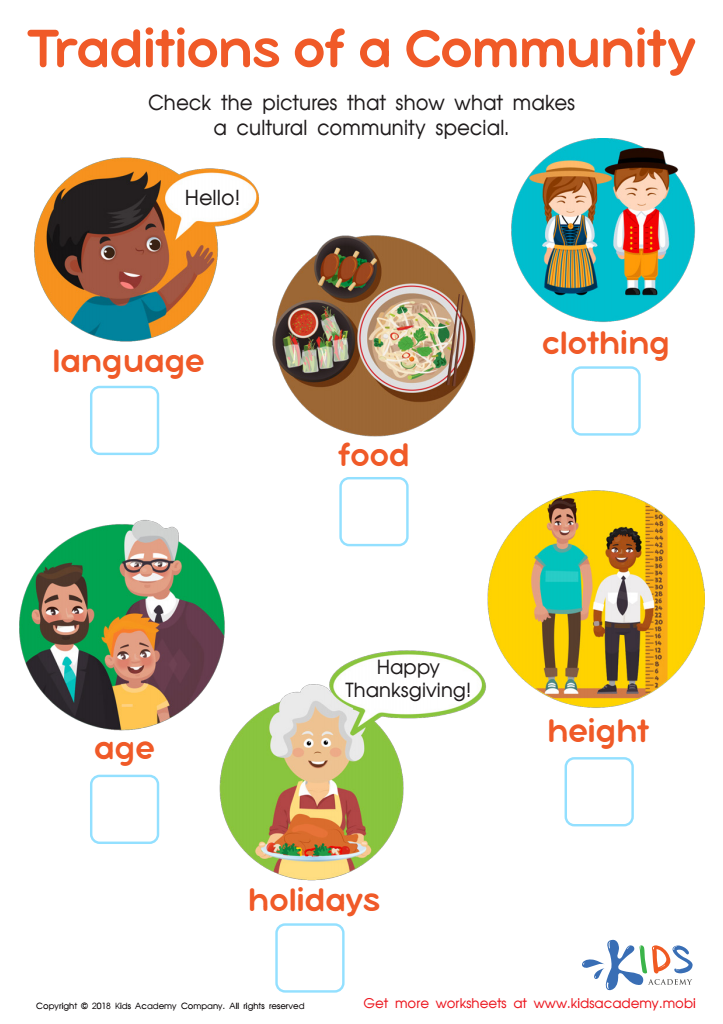

Traditions of a Community Worksheet
Does your child understand the differences between communities? Show them this printable PDF and ask them to identify the traditions that make each unique. Check the images, then discuss what happens in each community.
Traditions of a Community Worksheet
Worksheet
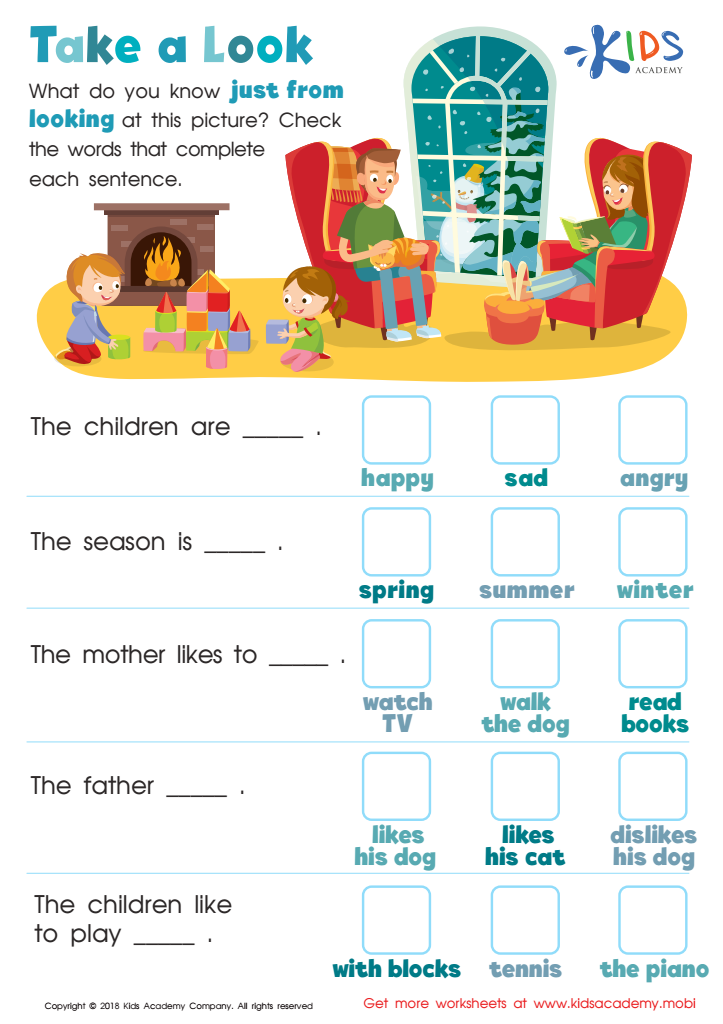

Take a Look - Part 1 Worksheet
Young learners gain understanding when using picture clues when reading. Looking at illustrations can help students learn the meaning of key vocabulary when reading fiction or informational text. Ask your students to look at the worksheet and observe what they can learn from the picture. It's a great comprehension strategy for early readers.
Take a Look - Part 1 Worksheet
Worksheet
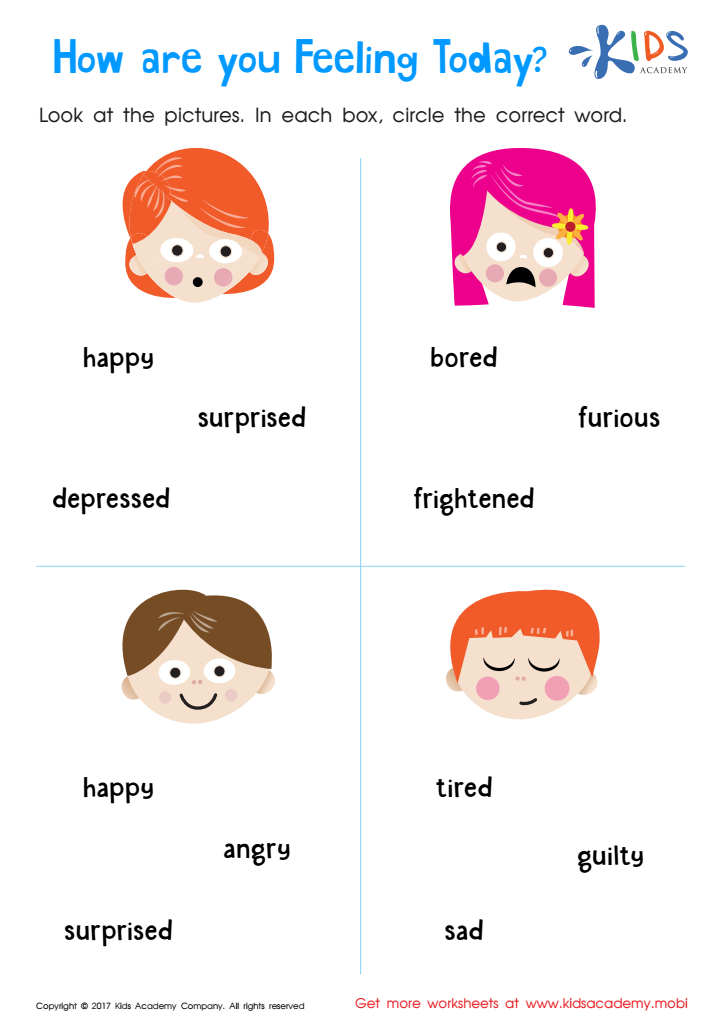

Understanding Feelings Worksheet
It helps them learn to empathize with others and regulate their own emotions. Try it today!
Develop your child's understanding of empathy and emotional regulation with this worksheet! It is a great way to help them acquire important life skills beyond academic knowledge. Print it and start using it to take their social and emotional skills to the next level. Try it now!
Understanding Feelings Worksheet
Worksheet
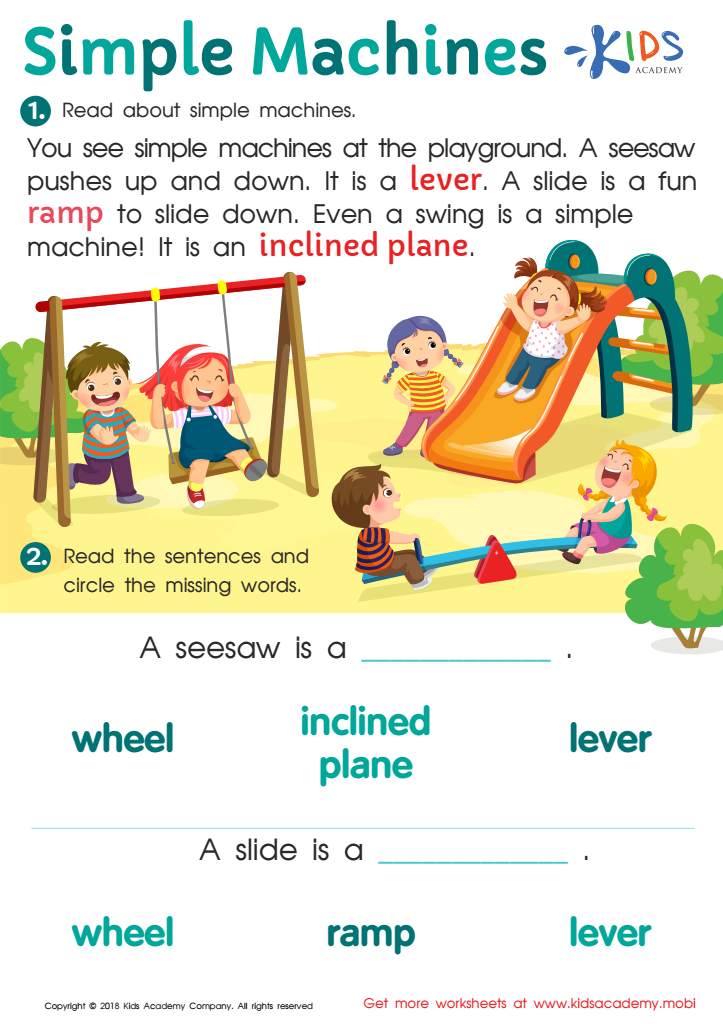

Simple Machines Worksheet
At the playground, your kids likely love to play and swing. Swings are simple machines – they work by using force to move something. Read the following sentences to them, with some words missing - help them fill in the blanks. Simple machines make work easier by __changing__ the size or __direction__ of a force. Swings use a _fulcrum_ and a _lever_ to move.
Simple Machines Worksheet
Worksheet
 Assign to My Students
Assign to My Students
